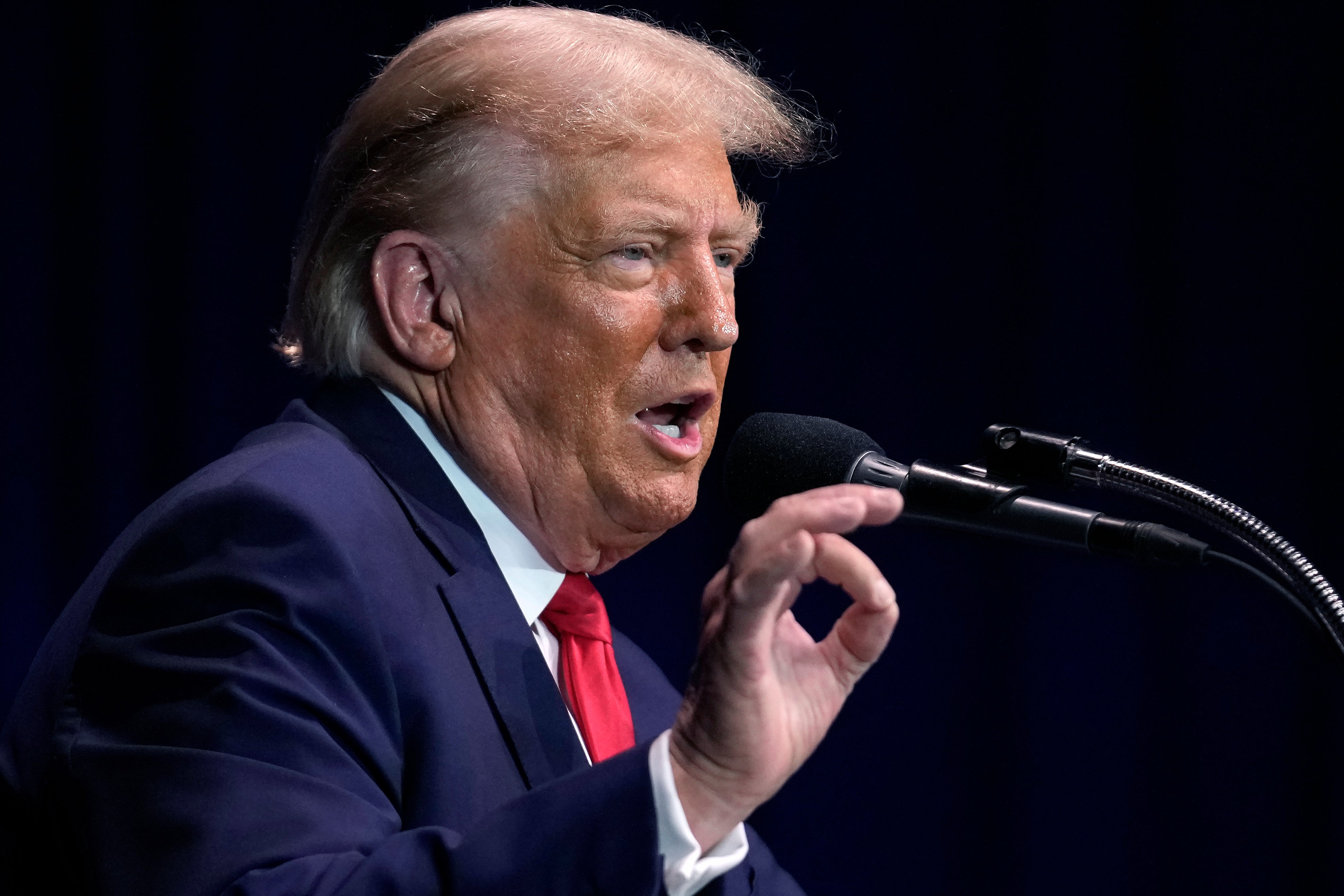Donald Trump’s financial statements were key to getting loans, ex-bank official tells fraud trial
Donald Trump obtained hundreds of millions of dollars in loans using financial statements that a court has since deemed fraudulent, a retired bank official has testified at the former president’s New York civil fraud trial

Donald Trump obtained hundreds of millions of dollars in loans using financial statements that a court has since deemed fraudulent, a retired bank official testified Wednesday at the former president’s New York civil fraud trial.
Trump’s statements of financial condition were key to his approval for a $125 million loan in 2011 for his Doral, Florida, golf resort and a $107 million loan in 2012 for his Chicago hotel and condo skyscraper, former Deutsche Bank risk management officer Nicholas Haigh testified.
They also helped Trump secure bigger loans and lower interest rates, said Haigh, who headed the risk group for the bank’s private wealth management unit from 2008 to 2018.
A judge last month ruled that Trump and his company, the Trump Organization, committed years of fraud by exaggerating the value of Trump’s assets and net worth on the financial statements he gave to banks, insurers and others to make deals and secure loans.
Trump's longtime finance chief, Allen Weisselberg, acknowledged in testimony Tuesday that information in the financial statements wasn't always accurate.
Trump denies any wrongdoing, emphasizing disclaimers on the documents that he says alerted lenders to do their own homework. Trump has claimed that banks he did business with weren't harmed, made lots of money in his deals and “to this day have no complaints."
Haigh is testifying in a trial in New York Attorney General Letitia James’ fraud lawsuit against Trump, his company and top executives. It’s the first time a bank official has been in court testifying in the case about the impact Trump’s financial statements had on his ability to obtain loans.
Deutsche Bank’s rules required Trump to act as a guarantor for the Doral and Chicago loans in addition to putting up the Miami-area resort and Wabash Ave skyscraper as collateral, meaning he would’ve been obligated to repay the loans if his properties faltered.
Deutsche Bank’s private wealth management unit, which handled the loans, wouldn’t have approved them without a “strong financial guarantee” from Trump, Haigh said.
Haigh said he reviewed Trump’s financial statements before approving the loans and, at the time, had no reason to doubt their validity.
The documents portrayed Trump as a wealthy businessman, heavily invested in golf courses and other real estate with strong cash flow and little debt, Haigh said. Deutsche Bank representatives also met with Trump Organization executives to go over the information, he said.
“I assumed that the representations of the assets and liabilities were broadly accurate," Haigh said of Trump’s financial statements.
Trump's 2011 financial statement listed his net worth as $4.3 billion. Haigh said he used that figure to shape a loan condition requiring that Trump, as guarantor, maintain a minimum net worth of $2.5 billion, excluding any value derived from his celebrity.
"As the ultimate decider, I needed to be comfortable with the terms of the loan, including the covenants that protected the bank,” Haigh said. The $2.5 billion benchmark, he said, was set “to ensure the bank was protected in adverse market conditions.”
Trump, the Republican front-runner in next year’s election, attended the trial's first three days last week, watching testimony, consulting with lawyers and griping about the case to TV cameras outside the courtroom. He's expected back in court as a witness later in the trial.
In a pretrial ruling last month, Judge Arthur Engoron found that Trump, Weisselberg and other defendants committed years of fraud by exaggerating the value of Trump’s assets and net worth on his financial statements.
As punishment, Engoron ordered that a court-appointed receiver take control of some Trump companies, putting the future oversight of Trump Tower and other marquee properties in doubt. An appeals court on Friday blocked enforcement of that aspect of Engoron’s ruling, at least for now.
The civil trial concerns allegations of conspiracy, insurance fraud and falsifying business records. James is seeking $250 million in penalties and a ban on Trump doing business in New York.
Bookmark popover
Removed from bookmarks